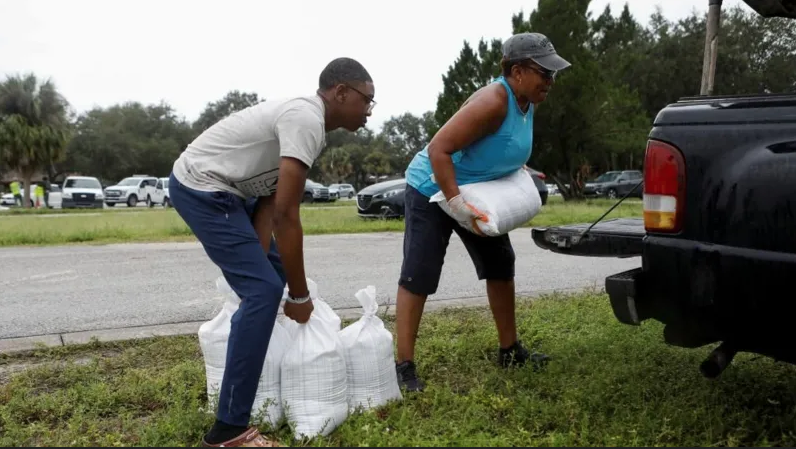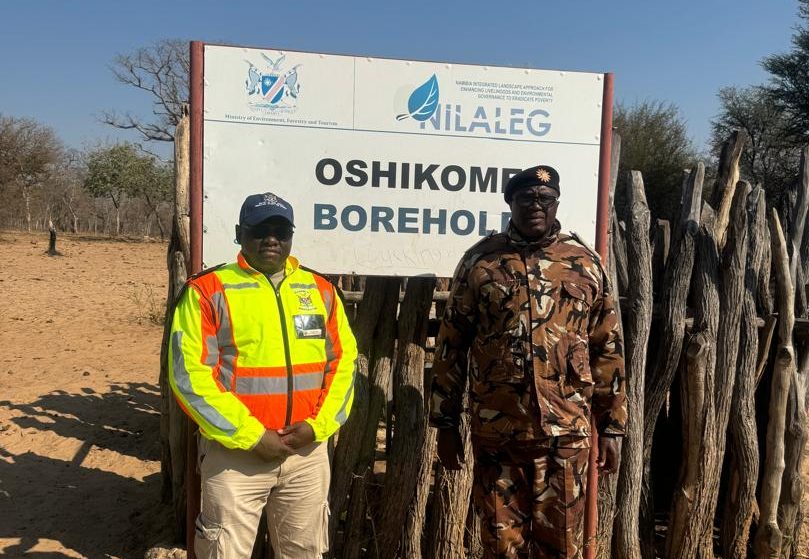263 in hospital for hunger in Omaheke
Written by on June 18, 2024
Omaheke governor Pijoo Nganate says 300 cases of malnutrition have been reported in the region so far this year, with 26 people dying.
“From January to June, we had 300 cases of malnutrition, meaning children go to bed without the necessary nutritious meals, if at all the right meals,” he says.
Some 263 people were admitted to hospital due to malnutrition, nine were readmitted, and 26 died in this time, Nganate says.
Addressing a high-level meeting focused on uranium mining in the Stampriet Transboundary Aquifer System on Monday, the governor expressed frustration with the lack of quality of life his region’s residents are forced to face.
“In a country with few people with all the resources to their disposal, so many people live in abject poverty, and, unfortunately, my region has not been spared that poverty.
Pijoo Nganate
‘UNDIGNIFIED LIFE’
“My region is not spared from hunger. People in my region are living an undignified life of dying from hunger,” he said. The Omaheke region is the least populated, with a population of 102 881, nearly four times smaller than that of the Khomas region. “We have a 39% unemployment rate,” the governor said.
Official opposition leader McHenry Venaani described this as a worrying situation influenced by a wanting government approach to food security and sustainability.
“Many people are dying because there is no food, and no expansion of malnutrition dietary requirements to citizens, because this country has become a net importer of stuff.
“If you look at the region of Omaheke, it is supposed to have some capacity. There is a lack of food generation,” he said. Venaani said the government has failed “epically” to provide for Namibians’ basic needs.
“If you look at the Copenhagen Consensus that has raised a number of concerns on how governments can be able to mitigate nutritious meals and make food security a reality, it is a critical issue that is highly rated, but the government does not take the matter of food security seriously,” he said.
The Copenhagen Consensus is an effort by controversial Danish public figure Bjorn Lomborg to develop a prioritised list of solutions to the world’s great challenges, such as disease, malnutrition, sanitation and climate.
Ben Schernick
‘TIP OF ICEBERG’
Nutrition and Food Security Alliance of Namibia director Ben Schernick agreed with Nganate’s figures, warning it is only the tip of the iceberg.
“Undoubtedly, we seriously and urgently need development and investment in places like Leonardville, but these must be healthy and sustainable ones,” he said.
The director said the current state of affairs speaks to insufficient protection systems.
“The current social protection systems are insufficient, and not as efficient as a universal basic income grant would be. “At the same time this shows we urgently need a universal/unconditional basic income grant (BIG) of N$500 for every Namibian from birth to 59 years to make a fundamental difference in terms of fighting malnutrition, poverty and inequality,” Schernick said.
He said one of the interventions they are working on is developing a malnutrition post-discharge strategy.
“It aims to prevent the readmission of children by strengthening their recovery and providing weekly follow-up and support visits to families in communities where referral and support systems must be strengthened in a bottom-up approach,” he said.
VOUCHERS
Meanwhile, social justice activists say converting drought aid from food parcels handouts to food vouchers could empower beneficiaries with more autonomy and choice in acquiring essential goods.
During an engagement between vice president Netumbo Nandi-Ndaitwah and Omaheke farmers at Gobabis last week, drought aid beneficiaries said they would want to receive food vouchers.
Last month, the executive director in the Office of the Prime Minister, I-Ben Nashandi, said the government has made N$825 million available to implement the programme.
Social justice activist Nafimane Hamukoshi says this would potentially address specific needs more effectively than standardised parcels.
She says she supports the voucher approach, provided it is implemented with careful planning, inclusivity and strong accountability measures to effectively support beneficiaries.
“Determining sufficient aid involves understanding the socio-economic challenges faced by drought in the affected communities. It will require a balanced approach that considers both immediate needs and long-term sustainability to ensure its lasting impact,” she says.
Hamukoshi, however, says the approach might be faced with challenges such as logistical hurdles in distributing and redeeming vouchers, ensuring accessibility for all beneficiaries, and providing adequate support and guidance on voucher usage.
“Given past complaints of mismanagement, I would emphasise the importance of accountability measures. This includes transparency in voucher distribution, clear guidelines on eligible purchases, and mechanisms for monitoring and evaluations to ensure funds are used as intended to the affected communities,” she says.
The chairperson of the Economic and Social Justice Trust, Herbert Jauch, says converting the aid would not be an easy exercise, given widespread levels of poverty and food insecurity.
Herbert Jauch
‘COMPREHENSIVE RESPONSE’
Jauch says the country needs a comprehensive response that goes beyond a temporary crisis like drought.
“This is where the introduction of a BIG would make a substantial difference, as it would enable households across the country to deal with setbacks and to reduce or eradicate poverty,” he says.
Jauch says the best way to render support to people in desperate situations is to involve them in the design of support programmes.
“In general, global experiences in dozens of countries have shown that cash grants are far more effective than donations in kind, because cash allows recipients to decide what they really need,” he says.
Jauch says interventions need to be designed to ensure basic needs are met.
“The problem of mismanagement will not occur if we roll out a BIG, as this could be done in the same way the old-age pensions are paid,” he says.
Jauch says some beneficiaries may mismanage the proposed approach, but people in general can be trusted and will spend the funds in ways to improve their circumstances.
“Regarding the best use of the support, experiences internationally as well as in Namibia, for example in Otjivero, have shown that the vast majority of recipients spend the cash wisely,” he says.
The post 263 in hospital for hunger in Omaheke appeared first on The Namibian.



